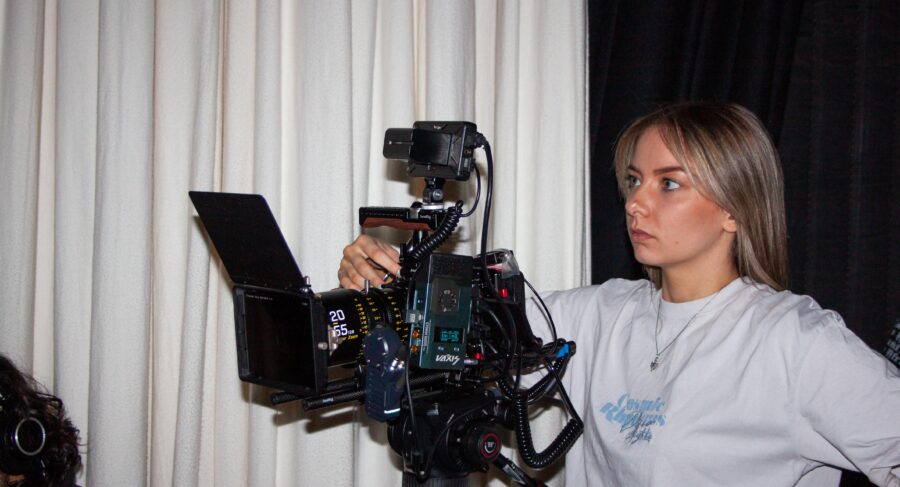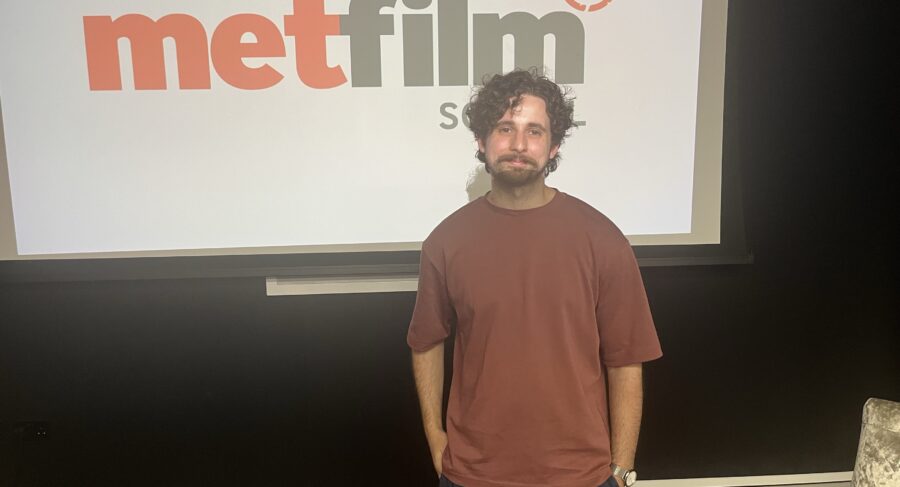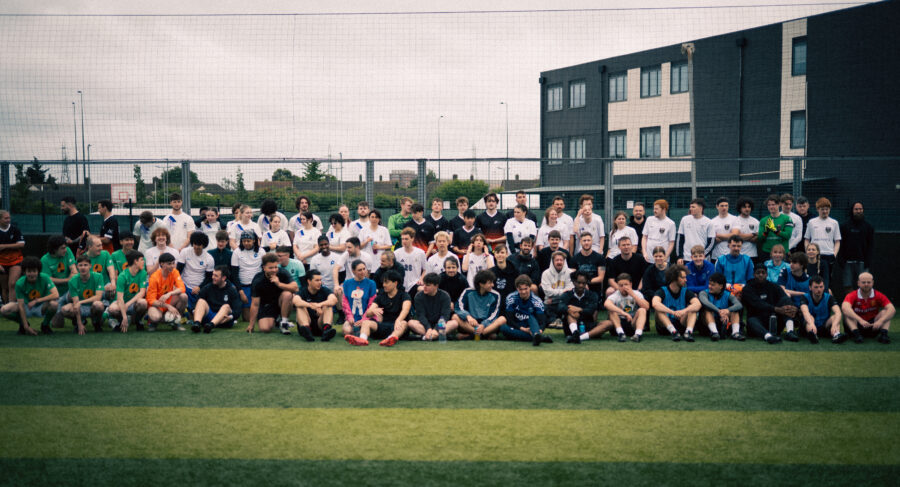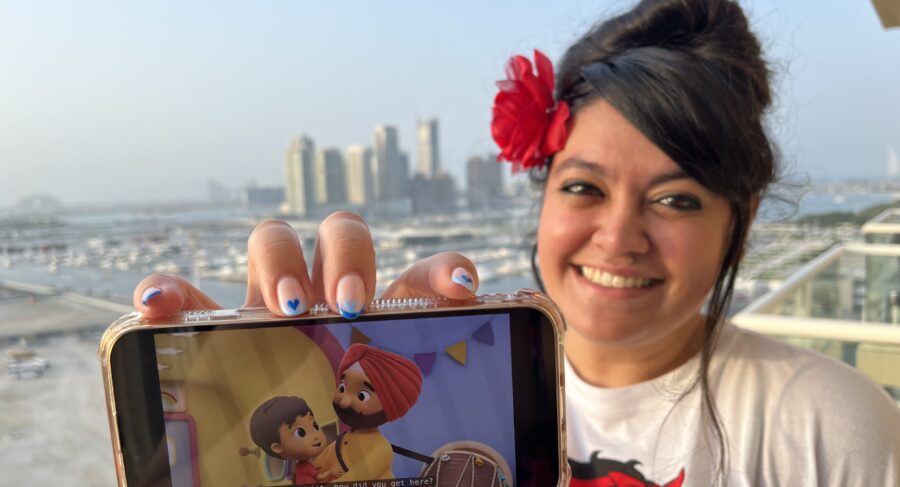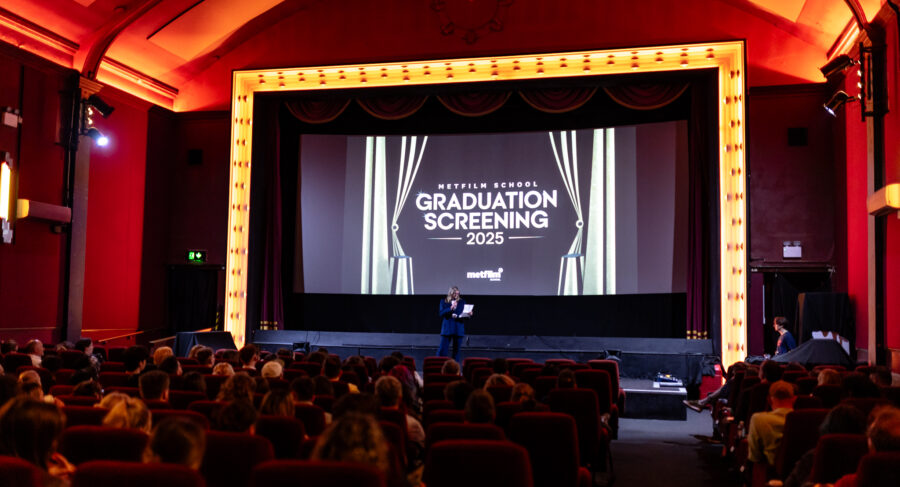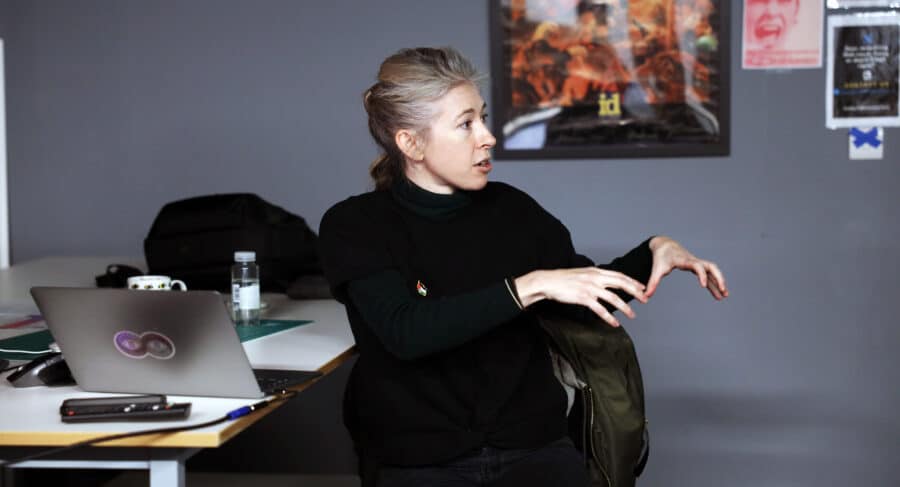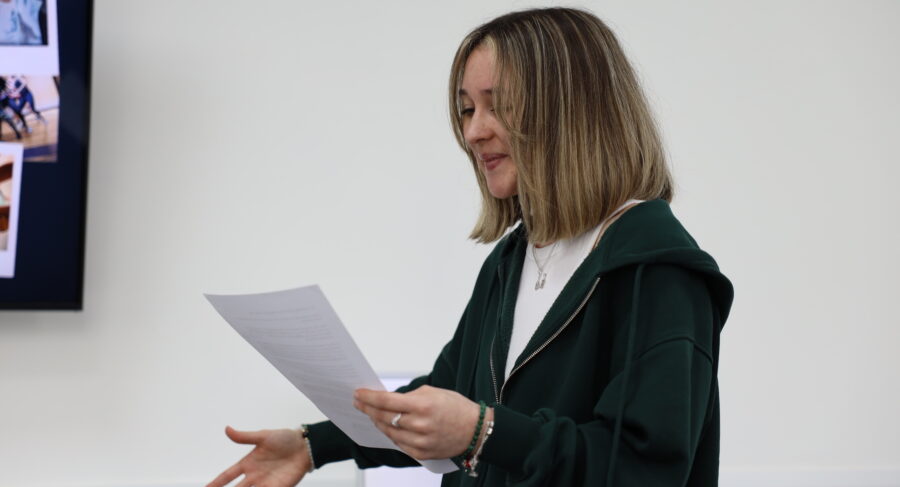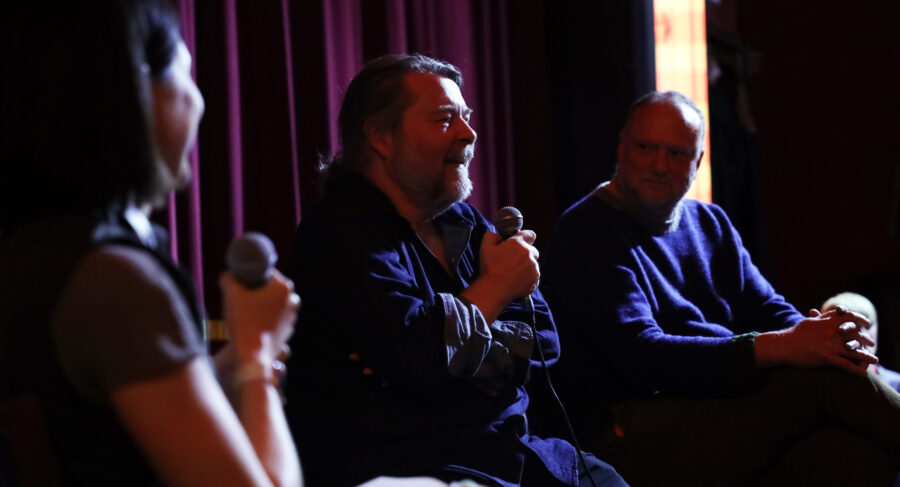Cultural Insights: Shubh Gaharwar’s Path from STEM to Filmmaking
By William Boyd
21 August 2024
If, like BA (Hons) Practical Filmmaking graduate, Shubh Gaharwar, you’re a film lover and want to begin your own filmmaking journey, heres how Metfilm School supported him.
Coming from a STEM background, Shubh shares how his time at MetFilm School shaped his directing style, taught him the importance of teamwork, and how his graduation project, The Lunchbox, was inspired by a curry.
1. What inspired your Graduation Project, The Lunchbox?
The lunchbox was inspired by a real incident that happened to me when I was younger. I remember bringing in chickpeas and curry one day for lunch and opening my food in the classroom. All my friends at that time made remarks about the food and moved tables. Whilst The Lunchbox draws from this incident, it is still entirely fictional, the feelings my characters face, and the emotions of the story are all drawn from certain points of my life. Looking back, I’m very thankful that my parents forced me to participate in my culture and my Indian heritage. Attending a predominantly white school, you look at everyone around you and realise that you’re somewhat different, which is cool in a way as you stand out more, but you also understand that you’re not the norm. Growing up, I was especially self-conscious about that.

2. You chose to use a bilingual screenplay in Hindi and English. Why was this decision important to you, and how has it shaped the film?
While writing the screenplay, it was important to me to be as truthful to the story as possible. I’ve grown up with a bilingual background, speaking English with my friends and Hindi with my family, both in the UK and back in India. I knew from the get-go I couldn’t have my characters just speak English, especially if one of the main characters portrayed an immigrant mum. From my own experiences, I know that speaking English fluently is something my mum struggled with when communicating with the other kids’ parents. Whilst it’s not directly discussed in the script, it’s the reason the mum in my story doesn’t speak to any of the parents, or why she dresses differently. There’s a barrier of communication not just for Rahul, the kid, but for his mum Deepika as well. It’s these nuances that I was afraid of losing if I had had the characters speak English the entire time. In the story itself, Rahul uses language to his advantage, by refusing to speak in Hindi. I really wanted to explore how language is both a tool and a barrier, and not just a default form of communication in film.
3. What have been some of the biggest challenges you’ve faced during pre-production, and how have you overcome them?
Working with child actors is the biggest and most obvious one. We knew from the get-go that we would have a lot of work to do when we all agreed to do this project, but even then, we didn’t quite comprehend how big of a challenge this was. There’s a scene that happens in a school early on, and just orchestrating that is huge. On one day we had 60+ cast and crew on set, trying to film a realistic school scene in just a day. And with the child actors aged 6-10 years old, their working hours being limited, everything revolves around them, from art, to scheduling, to the camera team. But what’s helped was the patience and organisation of everyone on the crew as there are a lot of moving parts. Everyone wears multiple hats so cross-collaboration in departments is key for this to work. I’m so thankful that everyone on The Lunchbox crew took the initiative and wanted to give the film the best chance it could.
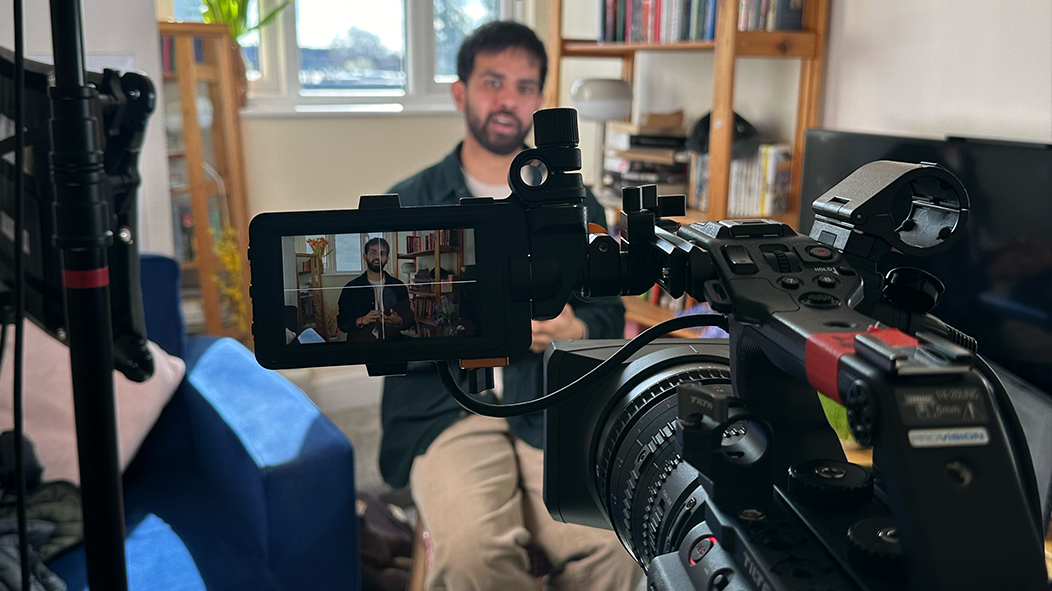
4. You have a fantastic team working with you to bring your vision to life. How important have your fellow students been for your journey?
I first wrote this script for a class assignment in Level 4 and shared it as a table read with my class. I received a lot of positive feedback, especially from students who had completely different backgrounds to me. I knew that there was something universal in the story. However, I parked that script for almost 18 months (about 1 and a half years) until we got to Level 6 and floated the idea of directing it as my graduation project. One thing that Metfilm emphasises is that making a film is a team effort, so I knew that I wanted to share it with people early on. The first person to be on board was my cinematographer, Josh Downing, who was in the initial ideas and story class, and knew I’d been thinking about making this since then. And my producers, Jolynn and Georgis, were both invaluable creative partners. When I first showed Jolynn the story, she was terrified and equally excited to take on what we all knew was going to be such an intensive project. But I think what made it work was we all have equal trust and admiration for what we do, we all trust each other’s opinions in the end.
5. And how has your time at MetFilm School shaped your directing style and the types of projects you aim to create?
I think the tutors have really shaped what kind of filmmaker I want to be, and how I tend to work with a team. In the first screenwriting elective, a quote that has stuck with me is that a screenplay is an invitation to collaborate. Going into Metfilm, I didn’t have any sort of experience in or behind a camera or in theatre, I came from a STEM background, so I didn’t exactly know what a director did. It wasn’t until working with a directing tutor and
making my short-form project, that I acquired a toolkit for working with actors. “Tulsi” my short form film, is a 5-minute film about an immigrant mother who learns to overcome her empty nest syndrome by fighting with a mattress. This was also a bilingual script and tackled similar themes of the immigrant experience and parent-child relationships. Short form acted really as a testing ground for the kind of stories I wanted to tell. By Level 6, I knew I wanted to focus on writing and directing, so I picked my electives accordingly. Through this, I again got to workshop ideas and stories for a feature idea about being queer and South Asian in a much deeper level than before. It really showed the holes in my writing and knowledge, which I now know to focus on. So, by the time I graduate, I think I’ll have a voice as a filmmaker and know the types of stories I want to tell.
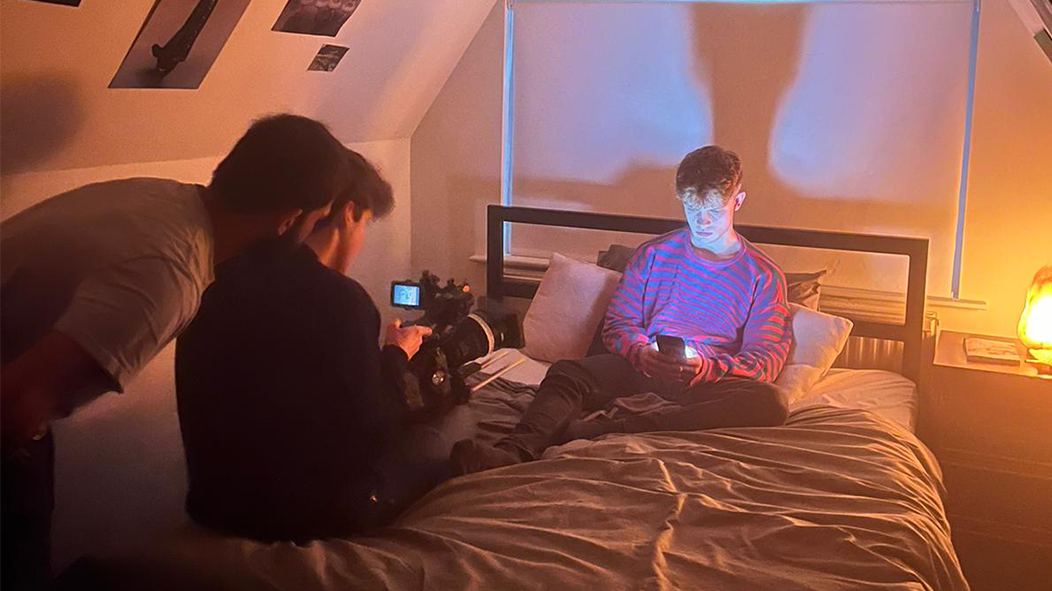
6. Do you have any previous experience working with child actors? How will you adjust your directing style to suit their needs?
Children terrify me, much more than working with adults, because a lot of the time they have no filter. When they feel something, they will let you know! But also, what’s exciting is it’s such a pure form of acting – you’re working with real emotions. I think I always knew I wanted to work with child actors, because a lot of what I write, in some part, is drawn from my experiences. I’m writing to look back and dissect what’s happened. Children are less self-conscious in some ways than adults, in the sense that, if you tell them they’re doing something wrong, they’ll change it without blinking twice. And so, you can be very direct and to the point when giving notes. But it’s so much harder for them to “act natural” when they’re paired up with other kids their age. One time in rehearsals, my lead actor, who was nine and very shy about being active in the room where we were rehearsing, became very stiff, no matter how much I told him to jump and play. At one point I even started running round trying to get him to act. It was only until I opened a door and told him to sprint 2 laps of the corridor, and when he came back exhausted, I shouted action – then he ran normally, jumping around. In times like that, child actors are wonderful to work with, it’s just about finding particular solutions when working with them.
7. The Graduation Project is your ‘calling card’ for the industry – how do you think The Lunchbox represents the director you want to be known as?
I’ve always treated The Lunchbox as a standalone project and didn’t intend on it being a proof of concept for a larger story, however it acts as a calling card for the industry in a sense. It highlights the themes and the tone of the types of stories I want to tell as a director. From short form to documentary and now with my graduation project, I’ve curated a tone and style that I hope people can look at and think “That’s the type of film
Shubh directs.” Even though all three projects have been about different subjects and story matters, what binds them together is an underlying philosophy and one which I’m still developing as a filmmaker which is keeping the camera still, not making it overdramatic and using little dialogue and natural lighting to build the worlds in my films. The Lunchbox is the culmination of this and when hopefully people in the industry watch it, they can see everything is there to help tell the story better.
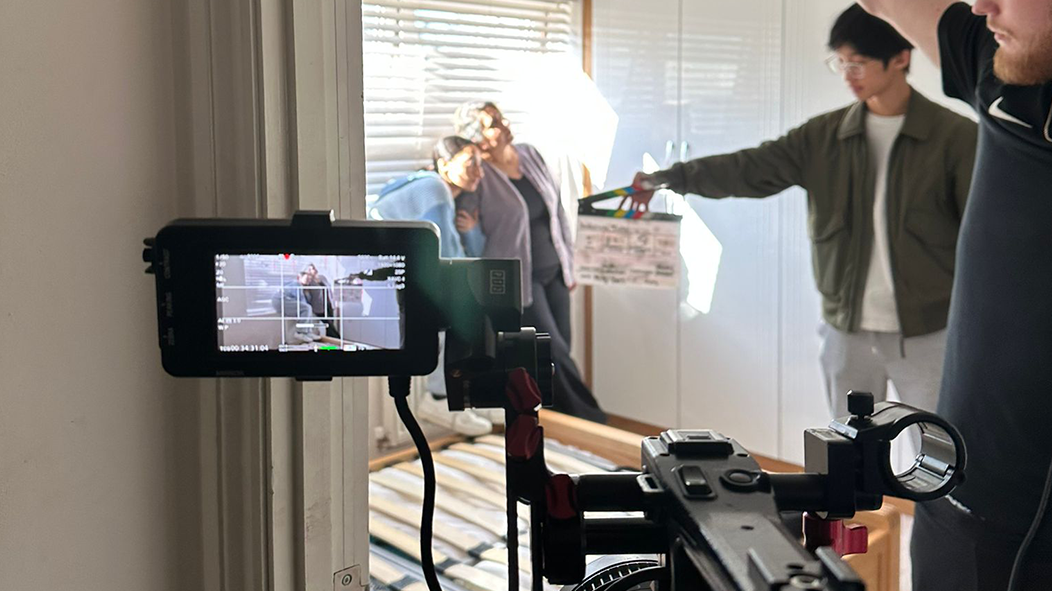
8. And finally, what advice would you give to students considering studying film at university or those about to begin their filmmaking journey?
It would be to watch as many things as you can and find out what you like, don’t like and why. I came to Metfilm school as a film lover and using this in creating my own projects, I was able to “steal” a bit from this director, take another thing from a film I’d seen and use it in my own films to help tell the story I wanted to tell better. I also think it’s important to make friends in film school and collaborate with them repeatedly. When you find your people, it’s so much fun making a film, because you’re making it with not only insanely creative people, but they also just happen to be your friends as well. This is the best feeling in the world – creating stories and making films with people you enjoy!
- Find out more about our full range of BA Degrees at our upcoming Open Days.

